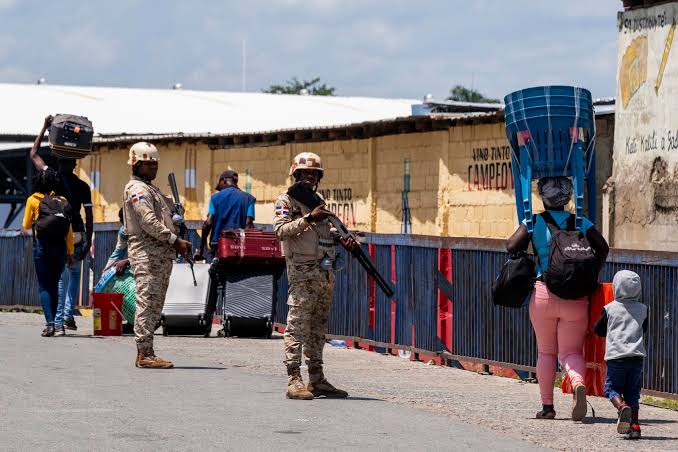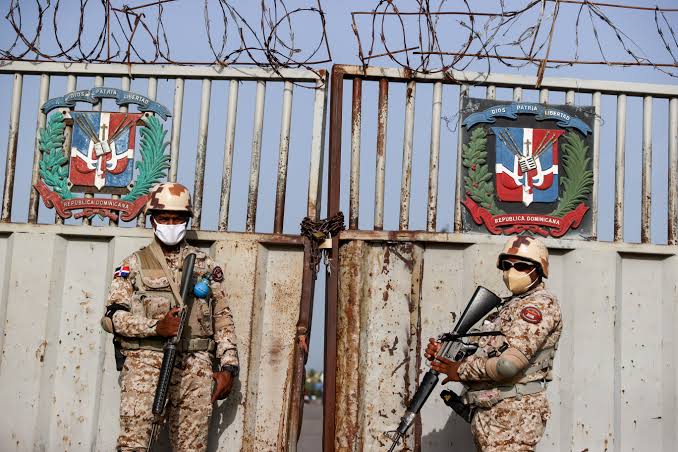President Luis Abinader of the Dominican Republic has announced the complete closure of the country’s border with Haiti later this week. The decision comes as tensions escalate over the construction of a canal from a shared river. The closure, scheduled to begin at 6 am local time (10:00 GMT) on Friday, will be enforced by the Dominican military and police forces and will remain in effect for as long as necessary, although discussions with Haiti will continue.
During a news conference on Thursday, President Abinader stated that the drastic measures were necessary due to the lack of alternatives. He emphasized that if the Haitian government, which is grappling with a surge in violent gang activities, failed to control the construction of the canal, the Dominican Republic would take action. President Abinader mentioned that his country had been prepared for this situation for weeks and had also considered the possibility of a peacekeeping force in Haiti.

Dominican Republic officials argue that the canal project will divert water from the Massacre River, which flows through both countries, and violate the 1929 Treaty of Peace, Friendship, and Arbitration.
Haiti—Dominican Republic Relationship
Relations between Haiti and the Dominican Republic, both sharing the island of Hispaniola, have been strained in recent years, particularly concerning border security and the treatment of Haitian migrants and asylum seekers in the D. R. On Wednesday, Haiti’s government revealed that it had met with Dominican officials in the Dominican Republic to address the canal dispute. The statement from Haiti’s Ministry of Foreign Affairs provided limited details but expressed the intention to seek a fair and definitive solution.
The D. R announced on Thursday that the impending border closure would encompass all land, sea, and air routes. Additionally, the country deployed an additional 20 armored vehicles to a military camp along the border. Haitians were observed rushing to the frontier, and Sunrise Airways scheduled an extra flight between the two countries on Thursday afternoon before the closure.
The United States Embassy in Haiti’s capital, Port-au-Prince, which has urged its citizens to leave Haiti due to the surge in violence, stated on its website that individuals planning to travel to the Dominican Republic would need to make alternate arrangements. The embassy emphasized its inability to facilitate entry into Haiti or the Dominican Republic via a closed border crossing.
The Republic previously closed its border with Haiti entirely following the assassination of Haitian President Jovenel Moise in July 2021.

